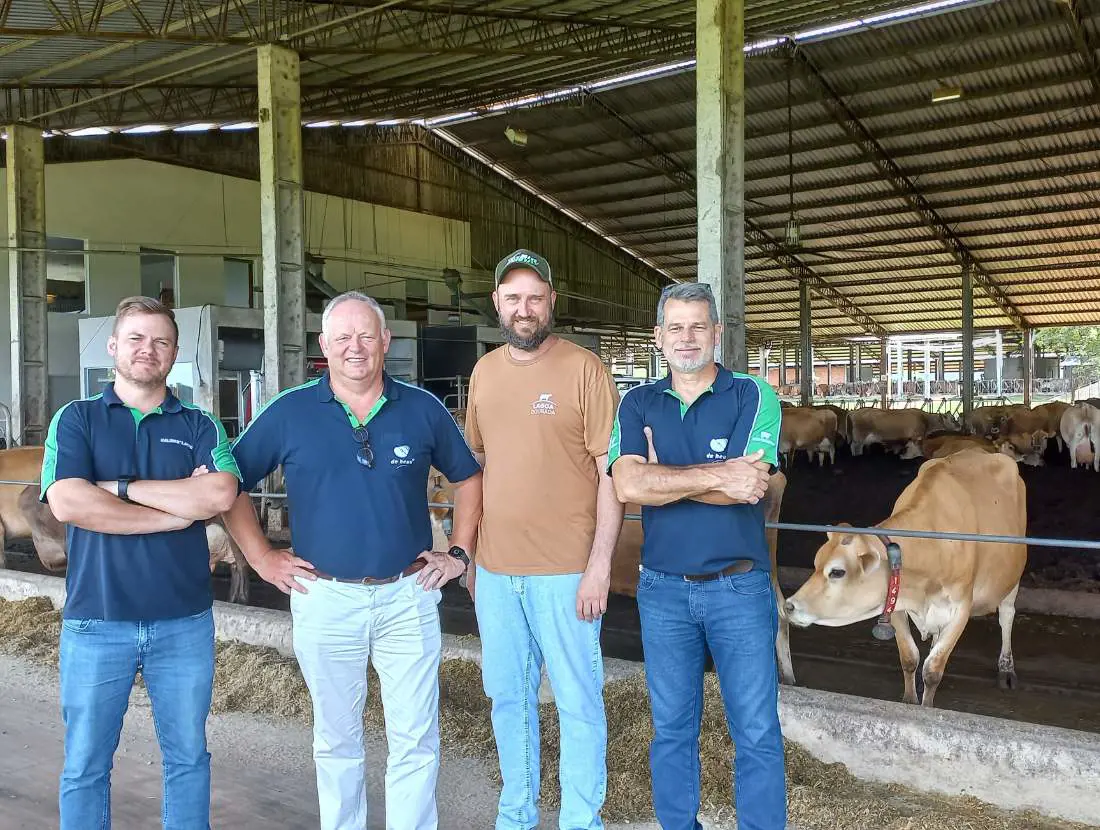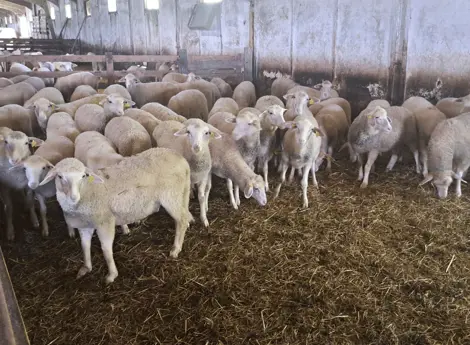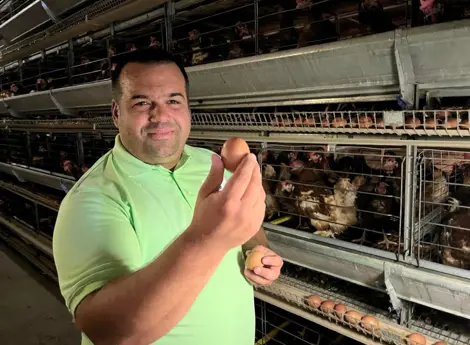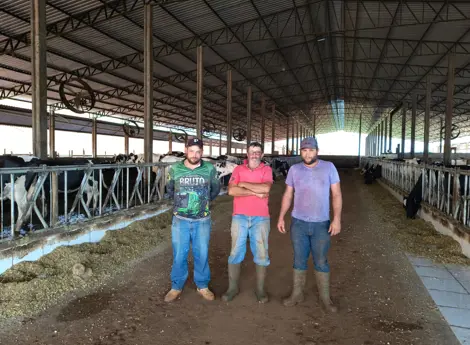Pioneering in robotic milking and efficiency in dairy farming
A descendant of Dutch settlers and a third-generation dairy farmer from the Biersteker family, Nico Biersteker and his wife, Ellen Salomons, jointly manage Lagoa Dourada Farm, located in Arapoti, Paraná. For the past seven years, they have relied on De Heus's expertise in animal nutrition to enhance the feed efficiency of their cows. The farm is monitored using the Milk Margin Monitor (MMM), which, in its latest benchmark, highlighted the quality and efficiency of the young couple’s business as the top among robotic milking dairy farms in the country—a reflection of the entrepreneurship and innovation in this generation's dairy industry.

Nico shares that everything has been meticulously measured from the beginning of the enterprise, drawing inspiration and benchmarks from the Netherlands before starting their business in 2016. This explains their interest in robotic technology—a system prevalent in the home country of De Heus, also known for its expertise in robotic milking. "We aimed to implement a breeding system that was not only profitable but also maximized the potential of our Jersey cows. The result was a high-quality final product and the excellent development of the females, all while maintaining animal welfare as a priority."
Robotic milking, animal welfare, and agriculture
Upon arriving at the farm, one finds the perfect blend of essential pillars for high productive performance in dairy farming, making the farm a true model of integration and management. "The heart of the farm is the robotic milking, and the robot helps us identify sick animals, those in heat, and also provides numerous data about each animal, aiding our decision-making. By choosing a free-flow system, where the cows themselves decide when to milk, eat, or sleep, we contribute to a less stressful environment. We interfere as little as possible in the natural behavior of the cows so that they can be comfortable and focus their energy on milk production. I want to enter the barn and see that the cows are comfortable and calm; I am certain that this impacts the results and my satisfaction as a milk producer. Moreover, the production of feed for the cattle follows crop rotation on the farm, ensuring the highest quality of silage."
The farm's Jersey cow herd is among the best in the country. With 397 lactating animals and an average milk production of 29.8 liters per cow per day—above the Paraná state average—the cows have shown 4.39% fat and 3.60% protein content in their milk. The property also invests in measures aimed at animal welfare and sustainability, such as using the compost barn system, which provides comfort and suitable conditions for the cows and complete separation of waste—always aiming for maximum resource utilization.
De Heus and Lagoa Dourada farm
De Heus has been robust and assertive in supporting properties that have adopted robotic milking in Brazil and globally, assisting their clients with the RobotExpert—a data management system in farms with robotic milking—that has helped Nico make the right steps towards refining this innovation on the farm. "Through this plan, it is possible to optimize the use of the robot, improving factors related to udder health, nutrition, cow activity, increasing productive capacity, reducing waste, and improving milk quality. It is very gratifying to see the progress we have made here, and it certainly helps us achieve ever better results," states the producer. "We are full of expectations to keep the legacy alive and hope to be able to pass on everything we have learned to the next generation," concludes Nico Biersteker.










